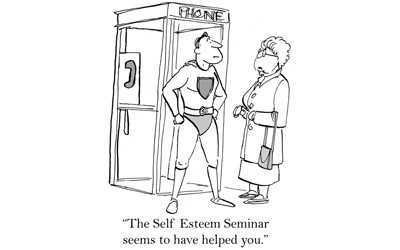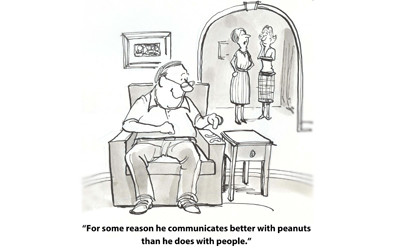5 Self Esteem Management Tips
There is an infinite assortment of books on how to improve self-esteem for you or for your children. Life coaching, personal trainers, and fit bit apps have also become enormously popular to help people become their ideal self. Conventional wisdom suggests that...
7 Tips for Social Phobia: The Big Bad Wolf Is You
Social phobia is excessive anxiety in social situations often triggered by fears of being negatively judged by others. People with social anxiety often feel as though they are being watched and scrutinized. They fear that they will be humiliated in a social situation...
Do Self-Affirmations Work? The Truth About Affirmations
Many people ask if self-affirmations work. What is the truth behind affirmations? Is there a type of self-affirmation that can work?
Top 5 Coping Skills to Manage Anxiety
In the mental health field, anxiety is akin to the common cold so everyone should know the top five coping skills for managing anxiety. At some point, everyone experiences anxiety and to a certain extent it is healthy. Anxiety prompts people to take action. Some anxiety about the term paper due for school, the midterm exam, the proposal for work, or the client meeting can increase motivation and a needed sense of urgency. However, when the anxiety is too great or irrational, it can be debilitating. Worries can persist for hours about health, job status a relationship or family members, effecting sleep, creating irritability and a chronic restless and edgy feeling. The anxiety can be so pronounced that one’s concentration and capacity to function or enjoy activities becomes hampered but using these coping skills for anxiety management can help.
Mindfulness vs. Psychoanalysis — Who Is Right?
The beliefs of those practicing mindfulness vs. psychoanalysis vary dramatically. Is mindfulness or psychoanalysis right?
How to Successfully Cope After a Relationship Breakup
It can be extremely difficult to successfully cope after a relationship breakup. A broken heart actually can, physically, hurt. Similar to physical pain, the somatosensory cortex (controlling sensations that may occur anywhere in the body) may be activated when processing emotional pain (Kross, Berman, Mischel, & Wagner 2011). This may explain why the ending of a relationship is often a catalyst for people to seek out psychotherapy. Ironically, instead of feeling more relief after discussing the dissolution of a relationship with a psychotherapist. many people actually feel worse. Why does this occur? How do you successfully cope after a relationship breakup.
Relationship Break-Ups and Negative Relationship Patterns
Relationship breakups often are often part of a negative relationship pattern. Research suggests that a couple days after Valentine’s Day is the most popular time for relationship breakups to occur according to Facebook status changes.
This research feels accurate as I have the most website visits during the month of February (according to my Google analytics) and new client phone calls. Coincidence? Maybe. Nonetheless, during this time (February) many of my clients describe disappointment, sadness and confusion as they try to understand and mend a broken heart from a breakup.
Although it is interesting to speculate on the pattern of when breakups occur, I believe it is more relevant to understand why people keep repeating negative relationship patterns. I have some explanations drawing from clinical anecdotes, psychological theory and research.
Being Authentic at Work or Faking It?
At work, can you be authentic or do you always have to fake it? Defining authenticity or being “real” can be an entire philosophical dissertation. A Buddhist may even say there is no true self. So to avoid obfuscation, I will use the following psychological definition found in research to define authenticity: authenticity is being aware of desires, objectively assessing strengths and weaknesses, engaging in behavior consistent with values and goals and being interpersonally honest. Studies indicate that greater authenticity can enhance self-esteem and overall wellbeing (Goldman & Kernis, 2002). Many people come to therapy because they want to live more authentically and discover their genuine feelings and motivations. However, what happens when one is at a job where being authentic can cause problems? Telling your boss off, or your client how you really feel about them could mean filing for unemployment. Do you fake it? The following are tips on how to cope when being authentic at work can be problematic.








